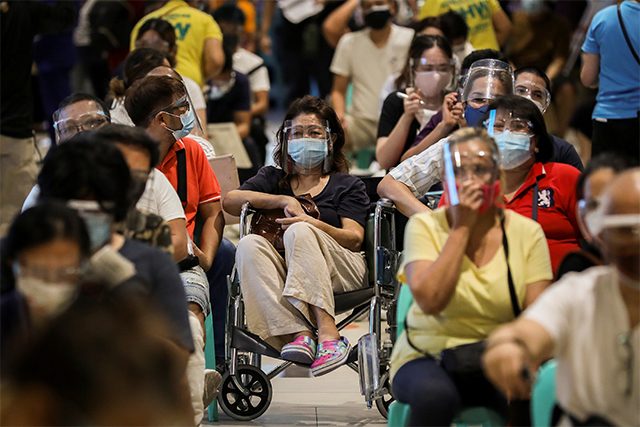
MANILA — Philippine President Rodrigo Duterte on Thursday approved the easing of some coronavirus restrictions in the capital and nearby provinces, with daily COVID-19 infections well down from a peak six weeks ago.
Religious gatherings and dining in restaurants will be allowed in Metro Manila and in the provinces of Bulacan, Rizal, Laguna and Cavite for two weeks beginning on Saturday, but non-essential travels will remain prohibited.
Outdoor tourist attractions may be opened but only at 30% capacity.
The quarantine status of Metro Manila and the adjacent provinces will be reviewed before May 31.
Since the government reimposed stricter rules on movement, new daily infections have fallen from a high of 15,310 on April 2. Daily cases this month have so far averaged around 6,700 in the country, which has the second-highest number of COVID-19 cases and deaths in Southeast Asia.
Gatherings for religious events as well as for funerals for those who died of causes other than COVID-19 will be allowed but limited to up to 10% of the venue capacity.
Duterte appealed to the public to “tone down” any religious gatherings and to stay mindful of the current situation.
“There is no way of knowing how long this (pandemic) will last,” he said in a regular televised address.
Heightened restrictions would still be in place, he said, and warned that he would hold local government officials responsible for any violations of health and safety protocols.
The government remains on guard especially against more infectious coronavirus variants, and has temporarily barred travelers coming from India, Pakistan, Sri Lanka, Nepal and Bangladesh.
The health ministry said on Tuesday that the country has detected two cases of a variant first identified in India, which is facing a devastating COVID-19 crisis.
—Reporting by Enrico Dela Cruz Editing by Frances Kerry









